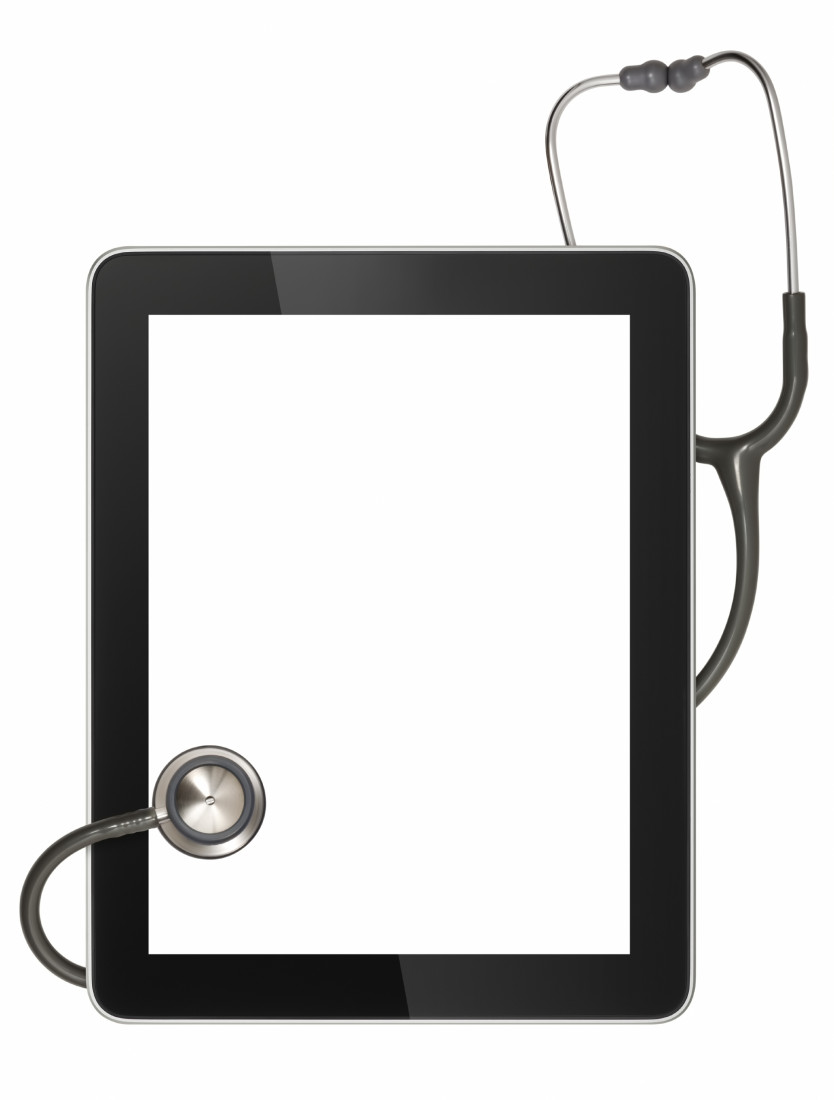Showing 14 posts in Electronic Health Records.
HIPAA Disclosures of Protected Health Information after Dobbs v. Jackson Women's Health Organization: Foster Swift Highlights Navigating Michigan and Federal Law
 After the Supreme Court’s ruling in Dobbs v. Jackson Women’s Health Organization overturned Roe v. Wade on June 24, 2022, the Department of Health and Human Services (“HHS”) was tasked with responding to how the Health Insurance Portability and Accountability Act of 1996 (“HIPAA”) would be affected. Particularly, HHS’s Office for Civil Rights has released guidance regarding how the HIPAA Privacy Rule may or may not permit disclosure of an individual’s sexual and reproductive health information without express authorization from the patient. Read More ›
After the Supreme Court’s ruling in Dobbs v. Jackson Women’s Health Organization overturned Roe v. Wade on June 24, 2022, the Department of Health and Human Services (“HHS”) was tasked with responding to how the Health Insurance Portability and Accountability Act of 1996 (“HIPAA”) would be affected. Particularly, HHS’s Office for Civil Rights has released guidance regarding how the HIPAA Privacy Rule may or may not permit disclosure of an individual’s sexual and reproductive health information without express authorization from the patient. Read More ›
Categories: Alerts and Updates, Electronic Health Records, Health Care Reform, HIPAA
HIPAA Compliance Considerations During the Pandemic
 This article has been updated with new information since it was originally published on November 16, 2020.
This article has been updated with new information since it was originally published on November 16, 2020.
As health care providers continue to face new challenges relating to the COVID-19 pandemic, it is important for providers to maintain compliance with the Health Insurance Portability and Accountability Act of 1996 (“HIPAA”). Although the Department of Health and Human Services Office for Civil Rights (“OCR”) has loosened some requirements to allow health care providers flexibility during the COVID-19 pandemic, a majority of the patient protections under the HIPAA Privacy Rule have remained intact. Read More ›
Categories: Compliance, Cybersecurity, Electronic Health Records, HIPAA
Health Care Providers Face Growing Ransomware Risks, and Potential Sanctions for Paying Ransom
 As if COVID-19 wasn’t enough of a challenge for many struggling hospitals and health care systems, there is another growing threat they must guard against: cyberattacks.
As if COVID-19 wasn’t enough of a challenge for many struggling hospitals and health care systems, there is another growing threat they must guard against: cyberattacks.
On October 28, 2020, the FBI, Department of Health and Human Services, and Cybersecurity and Infrastructure Security Agency issued a report warning of "an increased and imminent cybercrime threat" to U.S. hospitals and health care providers. Read More ›
Categories: Cybersecurity, Electronic Health Records, Hospice, Hospitals
Updates to the Confidentiality of Substance Use Disorder Patient Records Regulations
 Earlier this year, the Substance Abuse and Mental Health Services Administration (SAMHSA), a branch of the U.S. Department of Health and Human Services (HHS), finalized updates to the Confidentiality of Substance Use Disorder Patient Records regulation at 42 CFR Part 2 ("Part 2"). Read More ›
Earlier this year, the Substance Abuse and Mental Health Services Administration (SAMHSA), a branch of the U.S. Department of Health and Human Services (HHS), finalized updates to the Confidentiality of Substance Use Disorder Patient Records regulation at 42 CFR Part 2 ("Part 2"). Read More ›
Categories: Electronic Health Records, HIPAA, Hospitals, Physicians, Providers
Cybersecurity Concerns in Health Care
 Health care systems are eager to adapt to newer technology and widespread network options, all in the name of giving patients the best possible care. However, this comes with a price: more outlets for hackers to breach valuable data. Read More ›
Health care systems are eager to adapt to newer technology and widespread network options, all in the name of giving patients the best possible care. However, this comes with a price: more outlets for hackers to breach valuable data. Read More ›
Categories: Cybersecurity, Electronic Health Records
HHS Office for Civil Rights Publishes Checklist for HIPAA Covered Entities Responding to Cybersecurity Incidents
 The U.S. Department of Health and Human Service's Office for Civil Rights ("OCR") recently published guidance for entities covered by HIPAA, entitled "My entity just experienced a cyber-attack! What do we do now?" Read More ›
The U.S. Department of Health and Human Service's Office for Civil Rights ("OCR") recently published guidance for entities covered by HIPAA, entitled "My entity just experienced a cyber-attack! What do we do now?" Read More ›
Categories: Cybersecurity, Digital Assets, Electronic Health Records, Fraud & Abuse, HIPAA
Federal Health IT Coordinator Signs Off on 2017 Interoperability Road Map
 The Office of the National Coordinator for Health IT (ONC) released a report on January 29 that identifies optimal healthcare information exchange and implementation standards to enable a nationally interoperable health data information exchange system by 2017 (i.e. standards so that you can have your health records sent and read by all your doctors).
The Office of the National Coordinator for Health IT (ONC) released a report on January 29 that identifies optimal healthcare information exchange and implementation standards to enable a nationally interoperable health data information exchange system by 2017 (i.e. standards so that you can have your health records sent and read by all your doctors).
In healthcare, interoperability of IT systems allows providers to share data among different practitioners, insurers, billing and scheduling systems and health information exchanges. Interoperability has the potential to improve the quality of patient care by providing access to accurate, timely information in one location, save time previously used searching for information, and make critical medical information instantly available for clinical decisions.
Under the 2009 economic stimulus legislation’s electronic health records (EHR) incentive payment program, the ONC was directed to establish a governance mechanism for the nationwide health information network. Since that time, however, the ONC has been under increasing criticism about the lack of interoperability of EHRs despite the significant public investment. Read More ›
Categories: Accountable Care Organizations, Electronic Health Records, Providers
Court Decertifies Class Action Suit against Henry Ford Health System for Data Breach
 The Michigan Court of Appeals recently decertified a class action suit against Henry Ford Health System (HFHS) and its subcontractor, a medical transcription service, for inadvertently disclosing sensitive patient information online. On December 18, 2014, a unanimous three-judge panel reversed the trial court’s denial of summary judgment in favor of the defendants. The court held that an invasion of privacy claim requires an intentional act rather than mere negligence and that the plaintiff’s claims for negligence and breach of contract require proof of an actual injury.
The Michigan Court of Appeals recently decertified a class action suit against Henry Ford Health System (HFHS) and its subcontractor, a medical transcription service, for inadvertently disclosing sensitive patient information online. On December 18, 2014, a unanimous three-judge panel reversed the trial court’s denial of summary judgment in favor of the defendants. The court held that an invasion of privacy claim requires an intentional act rather than mere negligence and that the plaintiff’s claims for negligence and breach of contract require proof of an actual injury.
The class consisted of 159 patients who visited HFHS between June 3, 2008 and July 18, 2008. The case arose when the defendant subcontractor made a configuration change to its server which left certain patient records unsecured. As a result, Google’s automated web server, “Googlebot,” indexed the information and made it available for users to search online. The information included each patient’s name, date of service, and diagnoses. The unnamed lead plaintiff alleged that her records revealed a sexually transmitted disease. Read More ›
Categories: Electronic Health Records, Privacy
And Then There Was One: Economic Pressures Squeeze Metro Detroit Hospitals into Consolidation
 Reduced reimbursements. A shift toward global payment. A demand for integration, quality of care and medical specializations. In order to compete amidst today’s healthcare market pressures, independent hospitals in Michigan and around the nation are increasingly deciding that they cannot go it alone. A recent Detroit News article reveals how this trend is playing out in Metro Detroit, with one of the region’s last two independent hospitals poised for acquisition.
Reduced reimbursements. A shift toward global payment. A demand for integration, quality of care and medical specializations. In order to compete amidst today’s healthcare market pressures, independent hospitals in Michigan and around the nation are increasingly deciding that they cannot go it alone. A recent Detroit News article reveals how this trend is playing out in Metro Detroit, with one of the region’s last two independent hospitals poised for acquisition.
Observers of Detroit’s healthcare environment are reportedly not surprised by the news that Crittenton Hospital Medical Center has signed a letter of intent to join St. Louis-based Ascension Health, the largest Catholic and nonprofit health system in the nation. With Monroe-based Mercy Memorial Hospital announcing on January 6 that it is joining the ProMedica health care company, the Crittenton deal will leave Doctors’ Hospital in Pontiac as the region’s last remaining independent hospital.
Laura Wotruba, spokeswoman for the Michigan Health and Hospital Association, said that this is not a Michigan issue, but rather a widespread pattern. “[It is] a national trend [and] something we’ve been seeing around the country.” Read More ›
Categories: Electronic Health Records, Health Care Reform, HIPAA, HITECH Act, Hospitals, News & Events, Regulatory
Hackers Declare War on Health Care and Industry Fights Back
 "It's a war we're in." That's how John Halamka, the chief information officer of Boston-based Beth Israel Deaconess Medical Center, described the current state of affairs between the health care industry and the hackers and identity thieves who are trying to steal patient records.
"It's a war we're in." That's how John Halamka, the chief information officer of Boston-based Beth Israel Deaconess Medical Center, described the current state of affairs between the health care industry and the hackers and identity thieves who are trying to steal patient records.
A recent Boston Globe article detailed the threat and provided some interesting - and sobering - statistics and information:
- There is high demand for health records, and a single health record may be worth $50 according to the FBI
- Criminal intrusions into health care systems have risen 100 percent in the past four years
- Of 614 total identity theft breaches in 2013, 269 (43.8 percent) were in health care (the most of any industry)
- Despite being the subject of the most attacks, a recent study by BitSight Technologies found that health care providers are the slowest in any industry to respond to data breaches.
Hackers are motivated to target health records in order to facilitate identity theft, financial fraud and illegal drug use. The Boston Globe article, in particular, highlighted two recent incidents involving cyber-security breaches: (1) Chinese hackers seized the personal information of 4.5 million patients at a Tennessee-based hospital network, and (2) federal officials disclosed on September 4 that a hacker managed to install malicious software on HealthCare.gov. Read More ›
Categories: Electronic Health Records, Hospitals, Privacy, Providers
Categories
- Technology
- Did you Know?
- Retirement
- Lawsuit
- Tax
- Billing/Payment
- Privacy
- Legislative Updates
- Health Insurance Exchange
- Labor Relations
- Electronic Health Records
- Health Care Reform
- Providers
- Accountable Care Organizations
- Medicaid Planning
- Patents
- Alerts and Updates
- HIPAA
- Hospitals
- Contracts
- Fraud & Abuse
- News & Events
- Workers' Compensation
- Compliance
- COVID-19 and Workers' Compensation
- Digital Assets
- Criminal
- Employment
- Licensing
- Department of Labor
- Physicians
- Long-Term Care
- Medicare
- Affordable Care Act
- Employee Benefits
- News
- Hospice
- HITECH Act
- 6th Circuit Court of Appeals
- Regulations
- Medicare/Medicaid
- Regulatory
- Cybersecurity
- Insurance
- Pharmacy
- Audits
Best Lawyers® 2021
Congratulations to the attorneys of the Health Care practice group at Foster Swift Collins & Smith, PC for their inclusion in the Best Lawyers in America 2021 edition. Firm-wide, 44 lawyers were listed. Best Lawyers lists are compiled based on an exhaustive peer-review evaluation and as lawyers are not required or allowed to pay a fee to be listed; inclusion in Best Lawyers is considered a singular honor. Health Care practice group members listed in Best Lawyers are as follows:
- Jennifer B. Van Regenmorter, Holland
To see the full list of Foster Swift attorneys listed in Best Lawyers 2021, click here.



 Share
Share